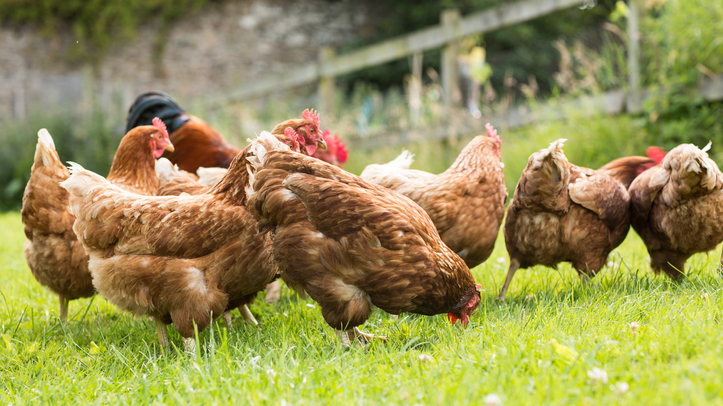Mandatory housing measures for poultry and captive birds, which were introduced across England and Wales to help stop the spread of avian flu, will be lifted from midnight on Tuesday (April 18).
Bird flu risk levels have been reduced, meaning poultry and other captive birds will no longer need to be housed and can be kept outside unless they are in a nominated Protection Zone.
However, the government has urged all bird keepers to continue to apply enhanced biosecurity measures such as disinfecting housing, clothing and equipment and minimising contact between poultry and captive birds and wild birds in order to prevent the risk of future outbreaks. Flock owners who intend to allow their birds outside are being advised to use the upcoming days to prepare their outside areas for the release of their birds, including cleansing and disinfection of hard surfaces, fencing off ponds or standing water and reintroduction of wild bird deterrents.
Avian influenza outbreaks across the UK and Europe have been on an unprecedented scale, with over 330 cases confirmed across the country since late October 2021. While the risk of bird flu has been reduced to ‘medium’ for premises with poor biosecurity and remains ‘low’ where good biosecurity is applied, the enhanced biosecurity requirements that were brought in as part of the Avian Influenza Prevention Zone (AIPZ) will remain in force as infection may still be circulating in the environment for several more weeks.
UK Chief Veterinary Officer Dr Christine Middlemiss said: “Whilst the lifting of the mandatory housing measures will be welcome news to bird keepers, scrupulous biosecurity remains the most critical form of defence to help keep your birds safe.
“It is thanks to the hard work of all bird keepers and vets who have played their part in keeping flocks safe this winter that we are in a position to take this action. However, the unprecedented nature of this outbreak has proven it’s more important than ever for bird keepers to remain vigilant for signs of disease and maintain stringent standards of biosecurity.”



